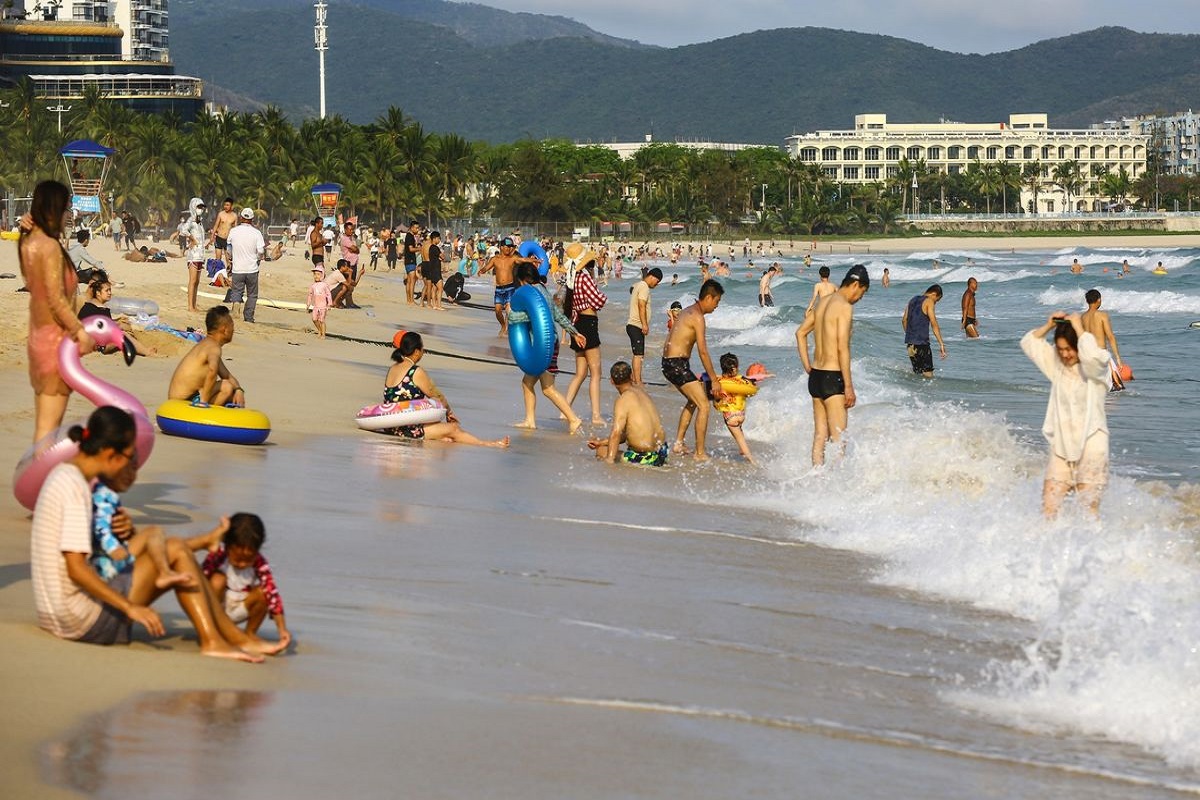- Hundreds of people have tested positive for norovirus in Sanya, Hainan Island’s tourist town known as “China’s Hawaii”.
- . Passengers must submit five negative PCR tests over the course of seven days before they may depart .
- Dr. Brian Hall, a worldwide mental health expert, says he has been locked up four times already this year.
Kyle Newton was looking for a vacation in Sanya, Hainan Island’s tourist town known as “China’s Hawaii,” after experiencing a two-month Covid confinement in Shanghai.
His journey to Hainan was scheduled to last less than a week and was the teacher’s first vacation in China since arriving just as the outbreak began. The island is located in the South China Sea, close off the southern coast of China.
However, when 263 positive cases were verified in Sanya on Saturday, officials stopped all flights and trains leaving the city.
After 504 instances were reported on the island, the lockdown was expanded to numerous cities on Monday.
The province capital, Haikou, with a population of about three million people, has been closed down, and around seven million residents have been advised not to leave their homes except for food and Covid tests, according to official media.
Travellers must now submit five negative PCR tests over the course of seven days before they may depart – if they can arrange a ticket out. According to the city’s deputy mayor, around 80,000 visitors have been stuck in Sanya. The great majority are Chinese, including many Shanghai residents.
Mr Newton, from the United Kingdom, claims he has had to wait for nearly two hours every morning to receive a Covid test, forcing him to postpone business appointments.
He described the scenario as “clearly upsetting,” particularly for those who had previously been subjected to lengthy restrictions in Shanghai.
“Everyone else who also came from Shanghai are all in pretty low spirits,” he told the BBC.
While passengers whose flights were cancelled on Saturday were apparently provided free hotel rooms, Mr Newton said that the hotel only gave him a 50% reduction on the room cost for extending his stay due to the lockdown.
“I’m ok, but there’s a lot of families here who haven’t been told what happens after they can’t afford it anymore, and why the hotel won’t also give them the same offer as the new guests,” he said.
Mr Newton said that information for foreigners who cannot read Chinese is limited, and he is unsure if guests are permitted to leave the hotel.
“It’s a case of having to join WeChat groups full of other stranded foreigners, all trying to piece information together,” he said, referring to the popular Chinese programme that mixes chat, payments, and social networking.
“If there is official information, it hasn’t been relayed to foreigners by anyone.”
“If there is official information, it hasn’t been relayed to foreigners by anyone.”
Brian Hall, a lecturer at New York University Shanghai, also said that it was unclear how long visitors would be required to stay in their rooms. His accommodation is reserved until Wednesday, and he says there has been no confirmation of the arrangement beyond that.
Dr. Hall said that this was his fourth incarceration of the year.
Dr. Hall’s living area was restricted again for another two weeks only four days after Shanghai released its lockdown at the beginning of June owing to a suspected close contact case in a neighbouring complex.
When he was permitted to leave, he went straight to Sanya, where he had to spend 10 days quarantined.
“My intention was to remain outside of Shanghai due to the ongoing lockdown and testing regime there,” he said.
Dr. Hall, a worldwide mental health expert, said that although lockdowns have been shown to be beneficial in decreasing virus transmission, they also have a “significant toll” on mental health and welfare.
“I am worried about how these lockdowns may influence people’s livelihoods, which in turn may have an impact on their mental health, particularly among those with insecure employment situations, migrants, and young adults,” he added.
Meanwhile, people like Simon Vericel describe the food supply as “annoying but not impossible.”
Mr Vericel moved his family from Beijing to Sanya in May to evade Covid control procedures in the city, which were considerably stronger at the time.
The Frenchman, a managing director at a public relations agency, claimed they had been able to order meals via delivery apps, but it may take up to 12 hours to arrive.
Nonetheless, Mr Vericel claims he has suffered less than visitors.
“We have a place to stay indefinitely if needed,” he said. “We are in lockdown in our residence, but can roam in the yard.”
[embedpost slug=”/oil-prices-drop-due-to-economic-fears-and-china-covid-restrictions/”]





















